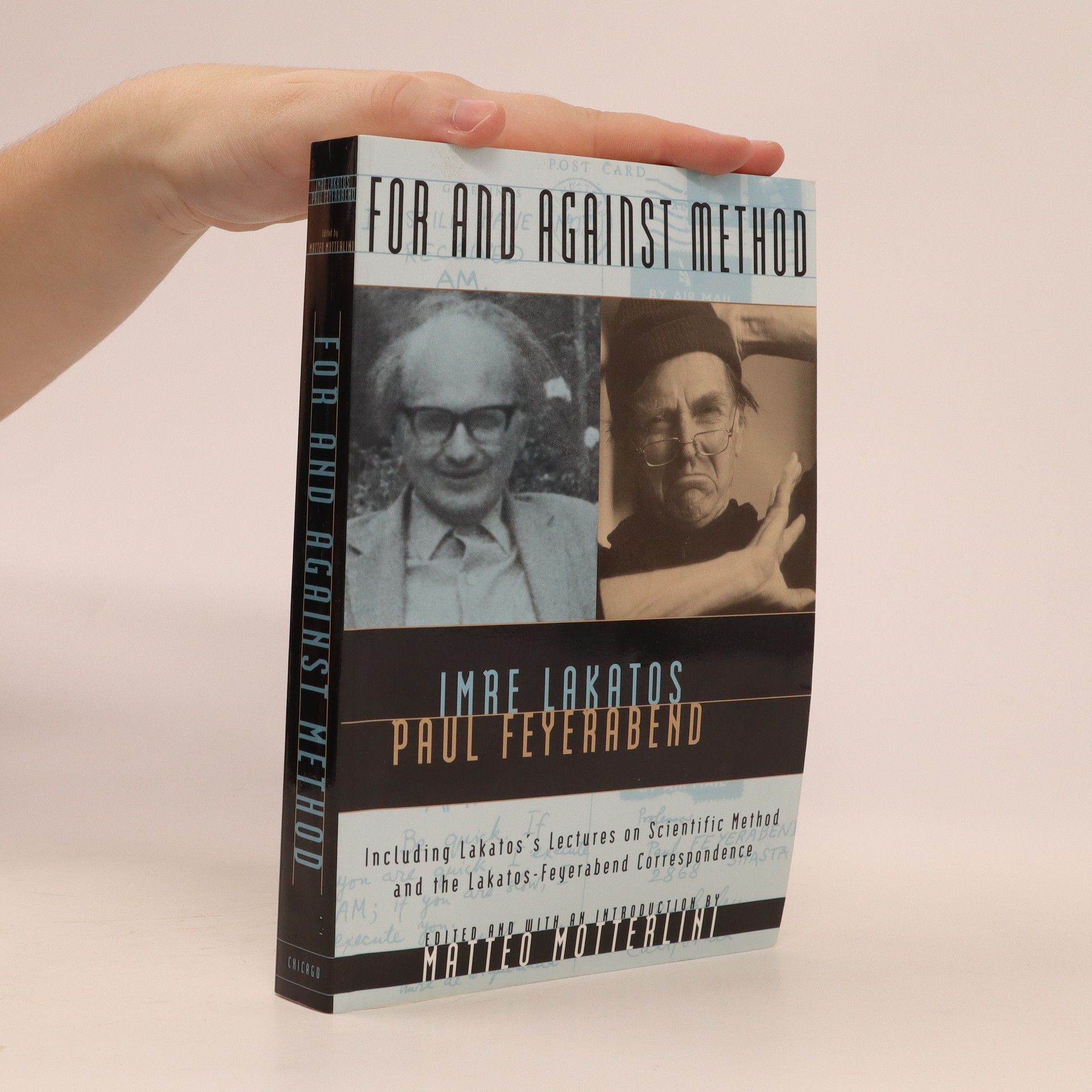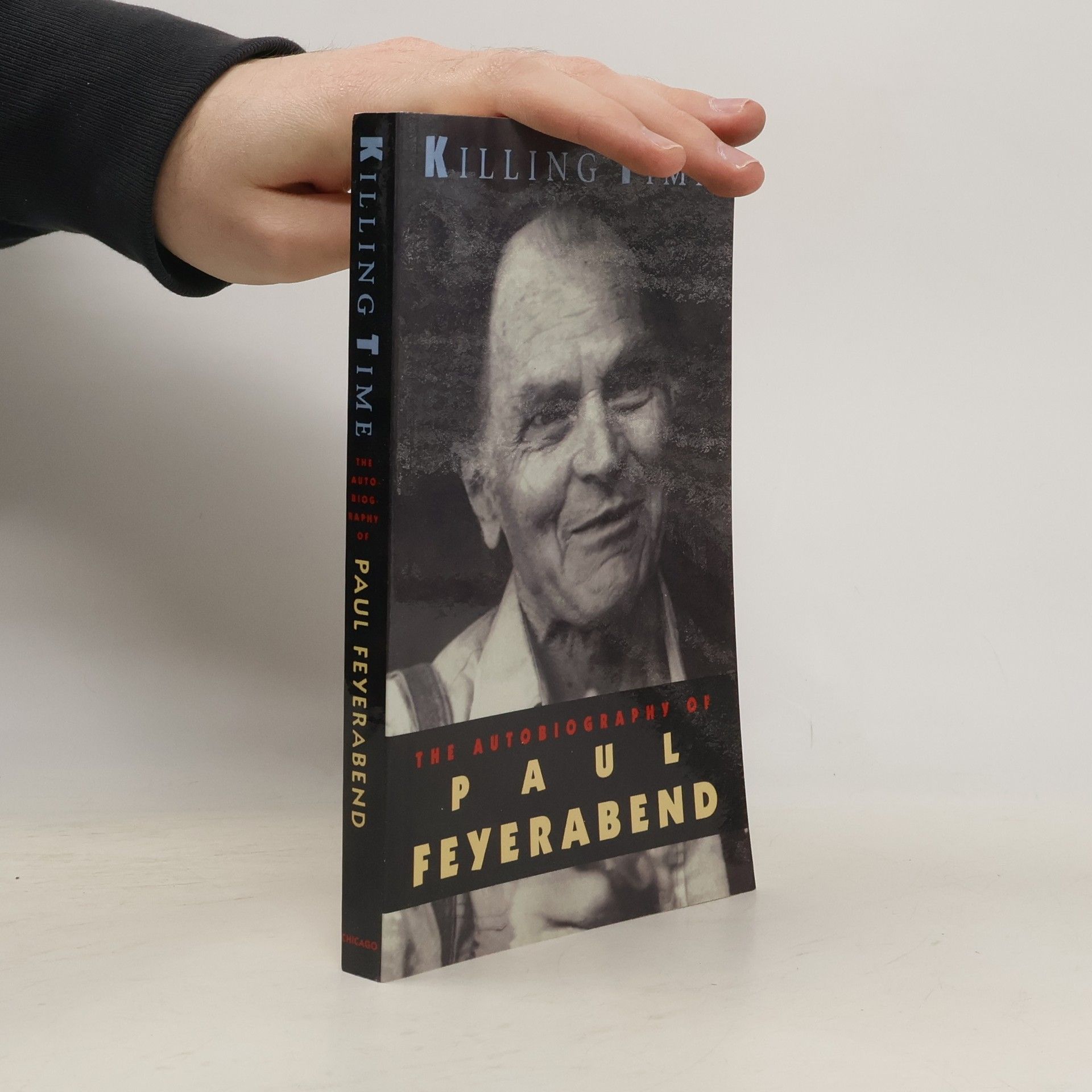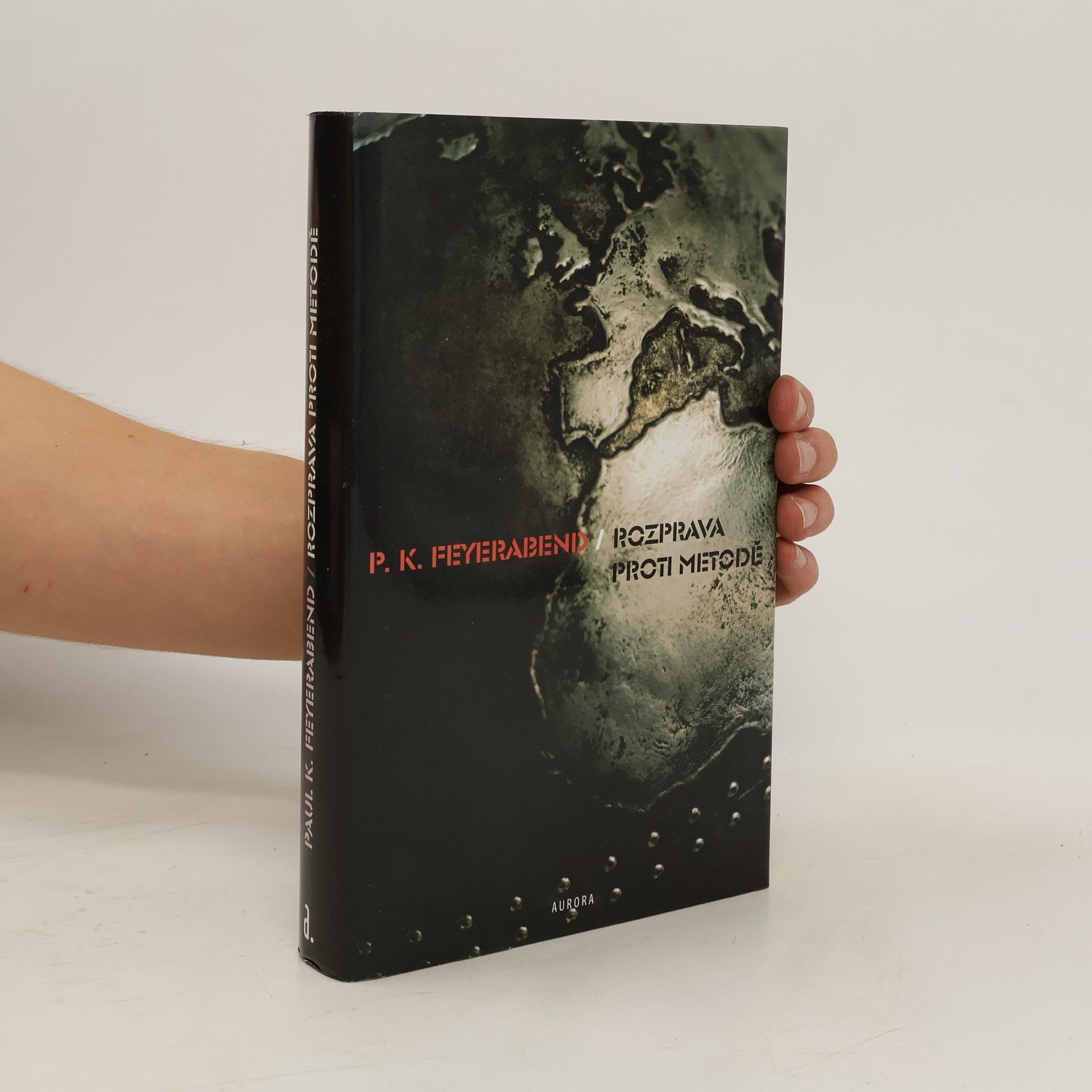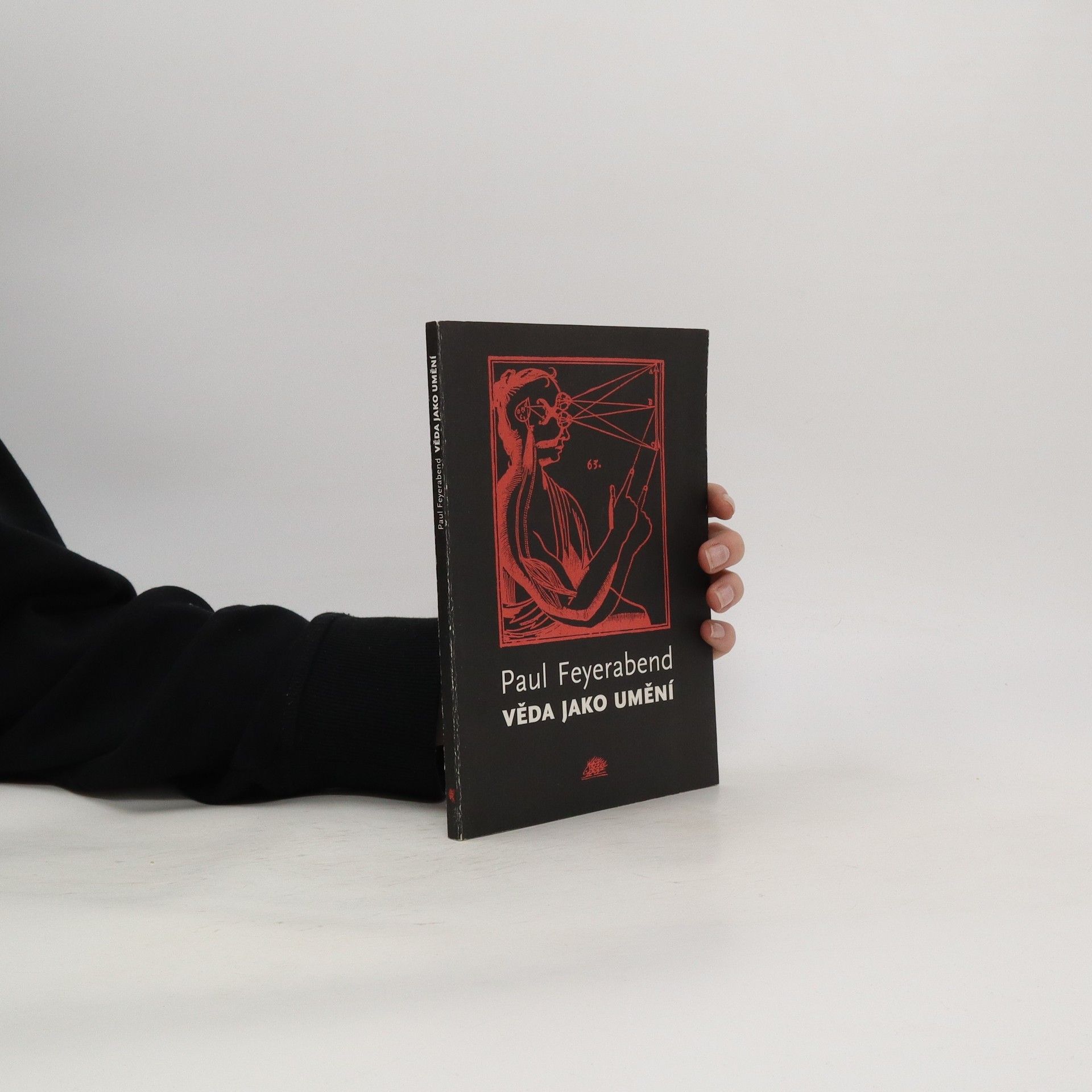Tři dialogy o vědění
- 179 stránek
- 7 hodin čtení
Tři dialogy o vědění jsou první autorovou knihou přeloženou do češtiny. Jemná ironie v dokonale dramaticky vystavěných dialozích.
Paul Karl Feyerabend byl rakouský filozof vědy, známý svým zpochybňováním univerzálních pravidel vědecké metody. Jeho práce zdůrazňovala svobodomyslný přístup k vědě a odmítala jednotné, univerzální postupy. Feyerabend se proslavil svým anarchistickým pohledem na vědu a stal se vlivnou postavou v oblasti filozofie vědy i sociologie vědeckého poznání. Jeho myšlenky nadále podněcují k zamyšlení nad povahou vědeckého pokroku.







Tři dialogy o vědění jsou první autorovou knihou přeloženou do češtiny. Jemná ironie v dokonale dramaticky vystavěných dialozích.
Rakouský filozof a teoretik dějin vědeckého poznání Paul K. Feyerabend ve spisu překonává tradiční představu neslučitelnosti teoretického a estetického diskursu a dějiny vědy chápe jako pluralitu stylů, kterou nacházíme i v dějinách umění. Kritika naivní představy o pokroku ve vědě a jejího autoritativního mocenského nároku se mu stává výchozím bodem mnoha provokativních úvah.... celý text
Stěžejní dílo rakouského filozofa Paula Feyerabenda vzbudilo senzaci v roce 1975, kdy se po jeho prvním uveřejnění ostře rozdělil tábor příznivců a odpůrců, kteří začali polemizovat v časopisech. Feyerabend byl označován za postmodernistu a radikálního subjektivistu, jehož paradoxní tvrzení a slogany jako „anything goes“ se staly známými. Tradiční pohled na dějiny vědy jako na proces neustálého opravování kritérií poznání Feyerabend zpochybňuje, když upozorňuje, že proces „objevování“ obsahuje mnoho neurčitého a osobního; objev může být výsledkem náhody. Podle něj byly nejvýznamnější objevy učiněny díky porušení pravidel uvažování, když se vědci oprostili od konvencí myšlení. Mnohorozměrnost skutečnosti nelze zahrnout pod jediný přístup nebo metodu. Filozofický výklad je podán poutavě a srozumitelně, zaujme především lidi otevřené novým názorům. I když je Feyerabend považován za jednoho z nejvýznamnějších filozofů 20. století, v češtině vyšla zatím pouze jeho kniha Tři dialogy o vědění. Proto je české vydání jeho nejznámějšího díla významným počinem.
Finished only weeks before his death in 1994, this autobiography traces the trajectory that led Feyerabend him from an isolated, lower-middle-class childhood in Vienna to the height of international academic success as one of this century's most influential intellectuals.
From flea bites to galaxies, Paul Feyerabend celebrated the sensory and intellectual richness of existence while acknowledging that human senses can only grasp a fraction of it. He posits that this limitation is a blessing, suggesting that a superconscious being would be overwhelmed rather than wise. This theme of managing experience is central to Feyerabend's work, which he was developing at the time of his death in 1994. The manuscript, compiled from his drafts, notes, and lectures, presents a captivating exploration filled with insights and the charm that characterizes his writing. Feyerabend examines how we strive to explain and predict the mysteries of the natural world, focusing on our tendency to abstract experiences and reduce wonder to formulas. He discusses the implications of these efforts, framing the "conquest of abundance" as a vital aspect of Western civilization's history and identity. Esteemed figures like Richard Rorty and Nancy Maull have praised Feyerabend's unique and adventurous approach to philosophy, highlighting his brilliant style and profound knowledge. This work serves as a testament to his thought, reflecting the richness of the world it seeks to understand.
The text opens with an imaginary dialogue between Lakatos and Feyerabend, which Matteo Motterlini has constructed, based on their published works, to synthesize their positions and arguments. Part one presents the transcripts of the last lectures on method that Lakatos delivered. Part two, Feyerabend's response, consists of a previously published essay on anarchism, which began the attack on Lakatos's position that Feyerabend later continued in "Against Method." The third and longest section consists of the correspondence Lakatos and Feyerabend exchanged on method and many other issues and ideas, as well as the events of their daily lives, between 1968 and Lakatos's death in 1974.
Farewell to Reason offers a vigorous challenge to the scientific rationalism that underlies Western ideals of “progress” and “development,” whose damaging social and ecological consequences are now widely recognized. For all their variety in theme and occasion, the essays in this book share a consistent philosophical purpose. Whether discussing Greek art and thought, vindicating the church’s battle with Galileo, exploring the development of quantum physics or exposing the dogmatism of Karl Popper, Feyerabend defends a relativist and historicist notion of the sciences. The appeal to reason, he insists, is empty, and must be replaced by a notion of science that subordinates it to the needs of citizens and communities. Provocative, polemical and rigorously argued, Farewell to Reason will infuriate Feyerabend’s critics and delight his many admirers.
No study in the philosophy of science created such controversy in the seventies as Paul Feyerabend’s Against Method. In this work, Feyerabend reviews that controversy, and extends his critique beyond the problem of scientific rules and methods, to the social function and direction of science today. In the first part of the book, he launches a sustained and irreverent attack on the prestige of science in the West. The lofty authority of the “expert” claimed by scientists is, he argues, incompatible with any genuine democracy, and often merely serves to conceal entrenched prejudices and divided opinions with the scientific community itself. Feyerabend insists that these can and should be subjected to the arbitration of the lay population, whose closes interests they constantly affect—as struggles over atomic energy programs so powerfully attest. Calling for far greater diversity in the content of education to facilitate democratic decisions over such issues, Feyerabend recounts the origin and development of his own ideas—successively engaged by Brecht, Ehrenhaft, Popper, Mill and Lakatos—in a spirited intellectual self-portrait. Science in a Free Society is a striking intervention into one of the most topical debates in contemporary culture and politics.
De-confusing and Re-constructing the Postmodern World
Includes essays and excerpts from the works of prominent modern thinkers such as Umberto Eco, Jacques Derrida, and Isaiah Berlin among others.
Paul Feyerabend, a prominent 20th-century philosopher of science, presents a compelling narrative that explores the rise of rationalism in Ancient Greece, which led to the establishment of a mythical ‘scientific worldview.’ In this accessible work, he challenges prevalent myths about science, particularly the notion that it is inherently successful. Feyerabend argues that fundamental assumptions about science are often misguided, with many scientific ideologies stemming from superficial generalizations that distort our understanding of human life. He contends that scientific theorizing fails to address pressing issues like war and poverty, instead favoring fleeting generalities over the real particulars that imbue life with meaning. The emphasis on objectivity and generality, rooted in abstraction, comes at a significant cost, creating a disconnect between thought and experience. Theoreticians impose a tyranny on concepts, neglecting the subjective experiences that enrich life. Feyerabend posits that practical experience serves as a more reliable guide to reality than theory alone and asserts that all forms of tyranny, even those with noble intentions, can be resisted. Provocative and iconoclastic, this work represents one of Feyerabend’s final contributions and is essential reading for those interested in the impact of science on the modern world.